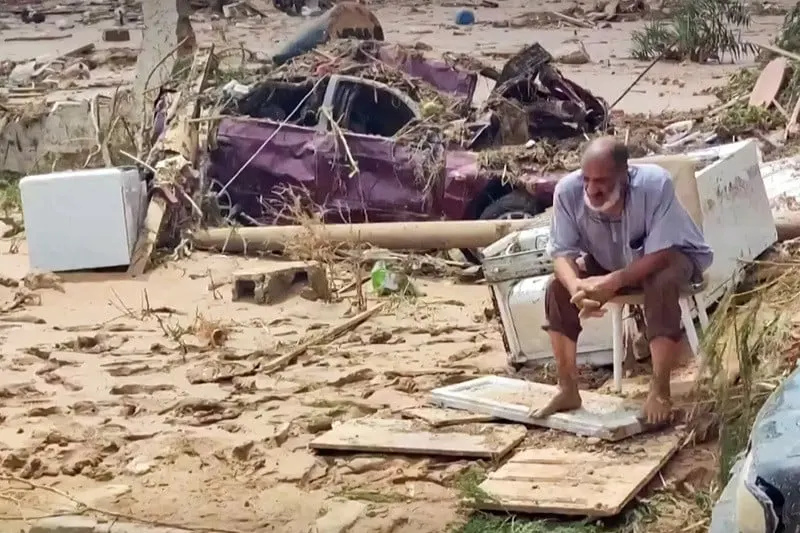A global aid effort for Libya gathered pace Thurs-day after a tsunami-sized flash flood killed at least 4,000 people, with thousands more missing — a death toll the UN blamed in part on the legacy of years of war and chaos.
The enormous surge of storm water burst two upstream river dams late Sunday and reduced the city of Derna to an apocalyptic wasteland where entire city blocks and untold numbers of people were washed into the Mediterranean.
The UN World Meteorological Organization (WMO) said most of the deaths could have been avoided if early warning and emergency manage-ment systems had functioned properly in the war-scarred country.
With better coordination, “they could have is-sued the warnings and the emergency management forces would have been able to carry out the evacuation of the people, and we could have avoided most of the human casualties,” said its chief Petteri Taalas.
Hundreds of body bags now line Derna’s mud-caked streets, awaiting mass burials, as traumatised and grieving residents search mangled buildings for missing loved ones and bulldozers clear streets of debris and mountains of sand.
The UN, United States, European Union and multiple Middle Eastern and North African nations have pledged to send rescue teams and aid including food, water tanks, emergency shelters, medical supplies and more body bags.
The floods were caused by hurricane-strength Storm Daniel, compounded by poor infrastructure in Libya, which descended into years of turmoil after a NATO-backed uprising in 2011 toppled and killed longtime dictator Moamer Kadhafi.
Libya is now divided between two rival blocs — the UN-backed, internationally recognised government in Tripoli, and an administration based in the disaster-hit east.
Access to Derna in the east remains severely hampered as roads and bridges have been destroyed and power and phone lines cut to wide areas, where at least 30,000 people are now homeless.
The catastrophe’s true death toll remained un-known, and officials have provided conflicting numbers.
A total of 3,840 bodies had been recovered by Wednesday, said Lieutenant Tarek al-Kharraz, spokesman for the interior ministry of the admini-stration ruling eastern Libya.
But many more people may have been washed out to sea or buried in the sand by the wall of muddy water that tore through the city overnight from Sunday to Monday, peaking as high as the second storey of buildings.—AFP










